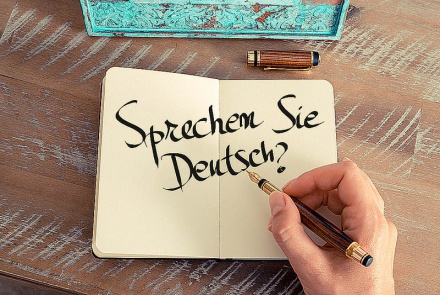Immigration consultant's notes. How to get residence permit without work permission in Austria.
Austria is one of the EU countries offering such a category of residency as a residence permit without work permission. Any citizen of a third country can obtain it under the following conditions:
- having sufficient financial resources
- after concluding a long-term rental contract,
- in the presence of medical insurance valid throughout Austria,
- in the presence of certificate confirming knowledge of the German language at level A1,
- provided that the applicant waives the right of employment.
The program is invariably in demand among both middle-income clients and large businessmen, due to the fact that Austria is a politically and economically stable country with a high level of security. It is also important that there is a real opportunity to apply for an Austrian passport after 6 years of permanent residence, and it is realistic to get it another year and a half after applying for citizenship.
A residence permit without work permission - Niederlassungsbewilligung ausgenommen Erwerbstatigkeit in Austria is in many ways akin to Rezidenza Elettiva in Italy and a visa visitor to France, but has some very significant differences:
- in Austria there is no need to demonstrate passive income;
- the number of residence permits allocated to applicants is limited. The number of quotas is determined annually by the Austrian government, distributed among the regions, and, as a rule, is about 450 per year. A quota is issued not only to the main applicant, but also to each member of the family, including minor children.
- Documents are submitted by applicants for residence permits starting from the first working day of the new year. As a rule, the nearest date is January 2;
- the distribution of quotas is carried out at the regional level according to the principle, "who is the first, he gets the quota."
So ... The first thing you have to start with is assessing the financial solvency of the applicant. If the applicant meets the requirements of Austrian law, then it is advisable for him to open a bank account in Austria and accumulate on it the funds necessary for living in the country.
The second issue is the choice of the region in which the applicant will apply for quotas, and therefore rent the housing that appears in the application for a residence permit. If a few years ago, the vast majority of applicants for relocation were interested only in Vienna, now "geography has expanded, tastes have changed." But, as before, the number of quotas for Vienna is significantly less than the number of people who want to move to the capital of Austria.
Third, a long-term rental agreement. Everything regarding the rental of residential premises is regulated by law. In rare cases, landlords refuse to provide housing to third-country nationals, citing a “language barrier”.
But the main question of the lease is different: how to relate the term of entry into force of the contract, bringing it as close as possible to the date of obtaining the residence permit? Obviously, there is a contradiction between the interests of the landlord and the tenant. Naturally, landlords are not eager to wait for several months for free until the tenant is ready to move ...
Insurance. Until a residence permit is obtained, it is only possible to purchase an insurance policy from a private company. After obtaining a residence permit, state insurance will become available. Since 2017, the requirements for obtaining health insurance have been tightened, which, of course, has led to an increase in total costs on the part of the client. The issue of how to postpone the moment the insurance policy comes into force at a later date remains very relevant (that is, there is a problem similar to renting a home).
Certificate A1. Most applicants for a residence permit do not have A1 certificates, since in some cases there is the possibility of replacing this certificate with an applicant’s diploma of higher education. The process of recognizing a diploma in terms of language takes several months, but is a lifesaver for clients who have not studied and are not going to learn German in the near future.
In general, it takes several months to prepare a complete dossier for a family, and this period still substantially depends on the actual state of personal documents (birth certificate, marriage certificate, diploma, etc.).
As a rule, the last document in the dossier is a certificate of no criminal record.
Reception of documents is possible only at the consulates of Austria at the place of main residence of the applicants. An exception may be made only by persons holding a valid residence permit in one of the EU countries. For them, the filing of documents in Austria is provided.
The most intense work awaits the applicant at the end of the year, when the formation of the final files for the main applicant and his family members is completed, and in parallel the task of booking the date and time of visiting the consulate is being solved.
Submission of documents to the consulate in January is a very formal procedure. This is followed by a waiting period of approximately two months, followed by the long-awaited invitation to the consulate for a visa D. The latter is necessary for entry into Austria in order to update a residence permit and receive an Aufenthaltstitel card.
In Austria, to complete the procedure you will need:
- register at the place of residence;
- visit the Magistrate.
If you still have questions, call to our office. We are ready to help you at all stages of the preparation of documents and accompany you both in Russia and in Austria.






